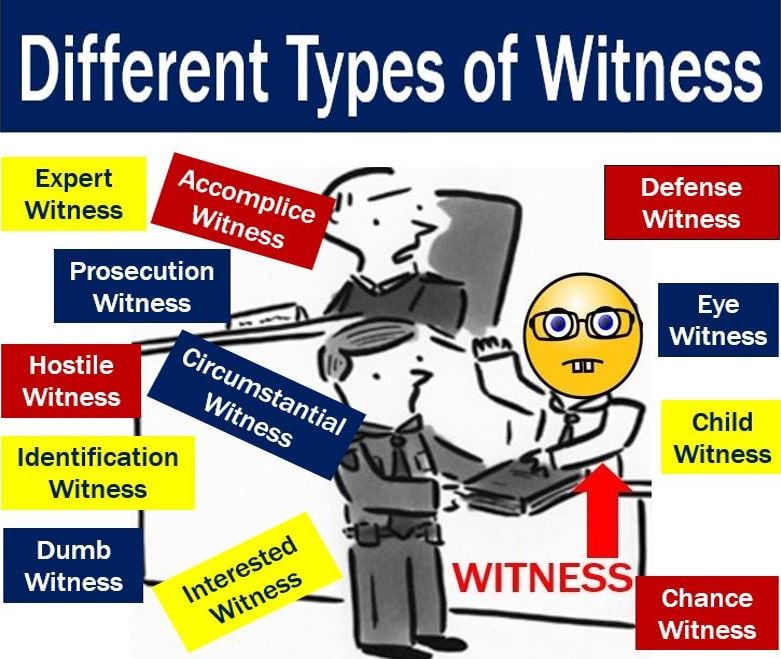The term witness has several possible meanings – it can be used as a noun or verb. As a noun, witness may mean an individual who testifies under oath in a trial, a person who saw an event, or somebody who observes the signing of a will, contract, or any document, attesting that it was signed in their presence.
The verb ‘to witness‘ means to see an event happen, or to be present when somebody signs something and confirms it with their signature.
The adjective of the term is witnessable, which means something that can be witnessed, as in the term: “Remember that your behavior in public is witnessable by others.”

Witness in a court proceeding
Either the defense or prosecution can call the witness to testify. The side that does this first asks questions – in legal English this is called a direct examination
The other or opposing side can then ask their own questions – they carry out a a cross examination. A redirect examination occurs when one of the sides calls the person who provided testimony to contradict what was said in the cross examination,
The term recalling a witness means calling a person, who has already given testimony in court, to give further testimony.
In most jurisdictions (countries’ legal systems), witnesses may not testify about something they were told – hearsay. They are only allowed to testify to what they experienced directly – first hand.
Expert witnesses, however, may testify in the area of their expertise – they do not need to have experienced an event first hand.
Witness vs. Testimony (nouns): the former is a person while testimony comprises the (legal) statements made in court by that person, because they saw what happened first hand. In other words, one refers to people while the other is the information they gave in court.
Etymology of witness
Etymology is the study of the origin of words, and how their meanings evolved over time. Somebody who specializes in etymology is an etymologist.
The noun of this term comes from the Old English word Witnes, meaning “attestation of fact, event, etc., from personal knowledge,” as well as “one who so testifies.” The first recording of the term Witness Stand – in a court of law – appeared in the English language in 1853.
The verb, with the meaning to “bear testimony” dates back to 13th century England. Meaning “add one’s signature to a document to establish its identity” dates back to the early 14th century. In the 1580s, the meaning to “see or know by personal presence, observe” emerged.

